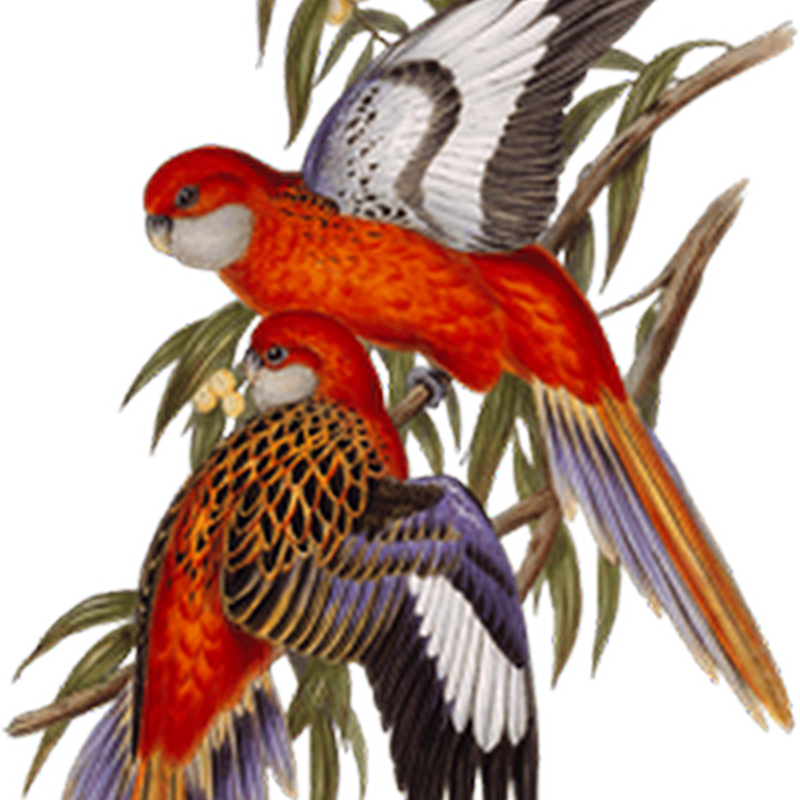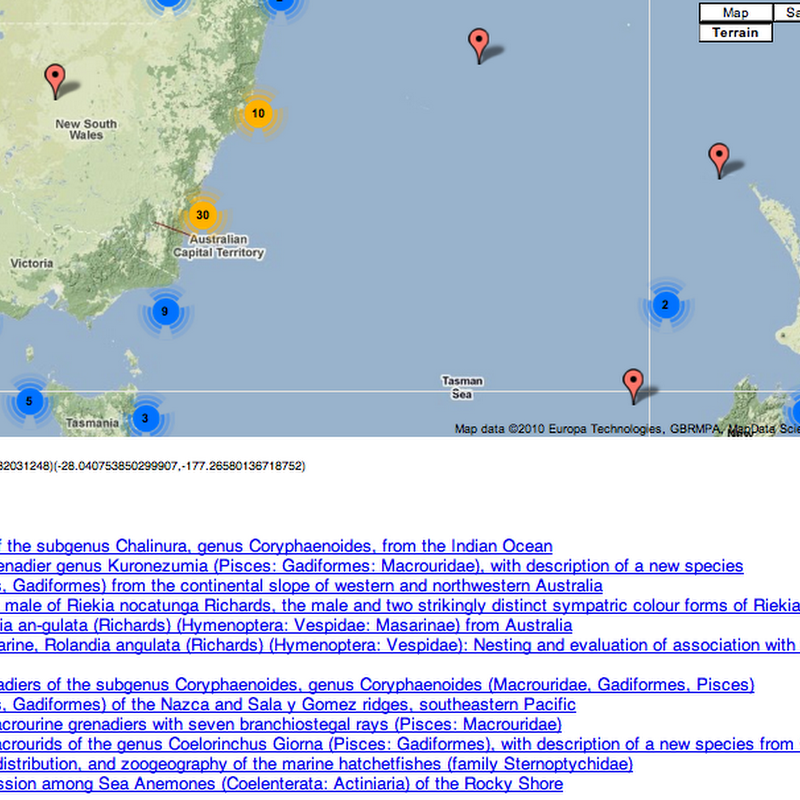
One of the fun things about developing web sites is learning new tricks, tools, and techniques. Typically I hack away on my MacBook, and when something seems vaguely usable I stick it on a web server.

One of the fun things about developing web sites is learning new tricks, tools, and techniques. Typically I hack away on my MacBook, and when something seems vaguely usable I stick it on a web server.
As part of a course on "phyloinformatics" that I'm about to teach I've been making some visualisations of classifications. Here's one I've put together using jQuery Mobile and the Encyclopedia of Life API. It's pretty limited, but is a simple way to explore EOL using three different classifications.

Following on from my previous post on BHL apps and a Twitter discussion in which I appealed for a "sexier" interface for BHL (to which @elywreplied that is what BHL Australia were trying to do), here are some further thoughts on improving BHL's web interface. Build a new interface A fun project would be to create a BHL website clone using just the BHL API.

I'm taking a virtual part in Mendeley's Hack4Knowledge event. I'm using this a chance to explore some ideas about building novel interfaces to bibliographic data in Mendeley. One idea is to display a user's entire library in one screen. I think the user interfaces employed by most bibliographic software are too conservative and there some cool things that could be done.

Inspired by the forthcoming Hack4Knowledge I've put together a service that enables you to assert that you are the author of a paper using the Mendeley API. If you are impatient, give it a try at: http://iphylo.org/~rpage/hack4knowledge/iwrotethat/ To use it you need a Mendeley account. When you go to I wrote that you will be asked to connect to your Mendeley account.
Now we'll bring the awesome. Mendeley have announced The Mendeley API Binary Battle, with a first prize of $US 10,0001, and some very high-profile judges (Juan Enriquez, Tim O'Reilly, James Powell, Werner Vogels, and John Wilbanks). Deadline for submission is August 31st 2011, with the results announced in October. The criterion for judging are: How active is your application? We’ll look at your API key usage. How viral is the app?

Dario Taraborelli has released ReaderMeter, an elegant app built on top of the Mendeley API. You enter an author's name and it summarises that authorship's readership in Mendeley. The app provides some summary statistics (mine are shown below), and if you click on the horizontal bar corresponding to a paper, you can see a visualisation of who is reading your paper, including a nice map.

This week seems to be API week. The Encyclopedia of Life API Beta Test has been out since August 12th. By comparison with the Mendeley API that I've spent rather too much time trying to get to grips with, the EOL API release seems rather understated.

Following on from my earlier post about the Mendeley API, I've bundled up my code for OAuth access to the Mendeley API for anyone who's interested in playing with the API using PHP. You can browse the code on Google Code, or grab a tarball here.

Every so often I revisit the idea of browsing a collection of documents (or specimens, or phylogenies) geographically. It's one thing to display a map of localities for single document (as I did most recently for Zootaxa ), it's quite another to browse a large collection.